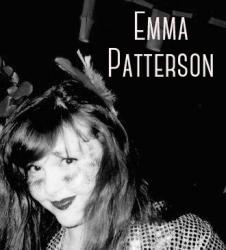Turtle is a new original piece from PUNCHEDcanvas, staged in The Barracks as part of the Cathedral Quarter Arts Festival. Written and directed by James Johnson, it attempts to deal with themes such as sexuality, violence, familial ties, and the dark past that looms behind our protagonist.
Firstly we’re introduced to Lily who, with just days to go until her wedding, is celebrating her hen do, which has been gate-crashed by her alcoholic and seemingly unhinged sister Polly. The action that ensues sees Lily caught between Polly and the dark secrets of her past that she’s tried so hard to run away from, and Aubrey, her fiancé and future, with whom she’s built a relatively stable new life. Throughout the eight acts, Polly struggles to reconcile her past with her future, and fears that the skeletons in her closet will ultimately be revealed.
The Barracks are softly lit with candles to create an intimate ambience, and both lighting and soundtrack are used to good effect throughout. The set itself is extremely minimalist; just a few bottles of alcohol, some books, an ironing board and a stool. The sparse set does not, however, detract from the action, in fact it allows the actors’ performances to truly shine through. The all-female cast includes Nuala Davies as Aubrey, Clare McMahon as Polly, and Adele Smyth-Kennedy as Lily. All three young actors bring a wealth of experience to the production, but Smyth-Kennedy, in particular, delivered an accomplished and nuanced performance, conveying with ease a character teetering on the edge of shame, guilt and anger. She surely represents a bright future for local talent.
The engaging performances delivered across the board were, however, let down by a script that lacked tangibility. The opening scenes started with promise; witty, sharp dialogue and black humour had the audience laughing, as did the blunt interactions between Polly and Lily. The director has to be commended for undertaking such an intense piece of work dealing with some very difficult subject matter, including sexuality, infertility, and murder. Turtle definitely conforms to PUNCHEDcanvas’ ethos of depicting universal stories instead of simply focusing on the political and cultural issues that are unique to Belfast, which is a refreshing outlook from a local theatre company.
However, as the play progressed the plot became increasingly more convoluted and unrealistic, with an open-ended final scene that offered little resolution. Ultimately, Turtle was perhaps over-ambitious in its desire to be both shockingly visceral and thought-provoking, neither of which it managed to fully accomplish. It is a testament to the cast that their performances managed to elevate the script, and they fully deserved the overall positive reaction which they received from the audience.



